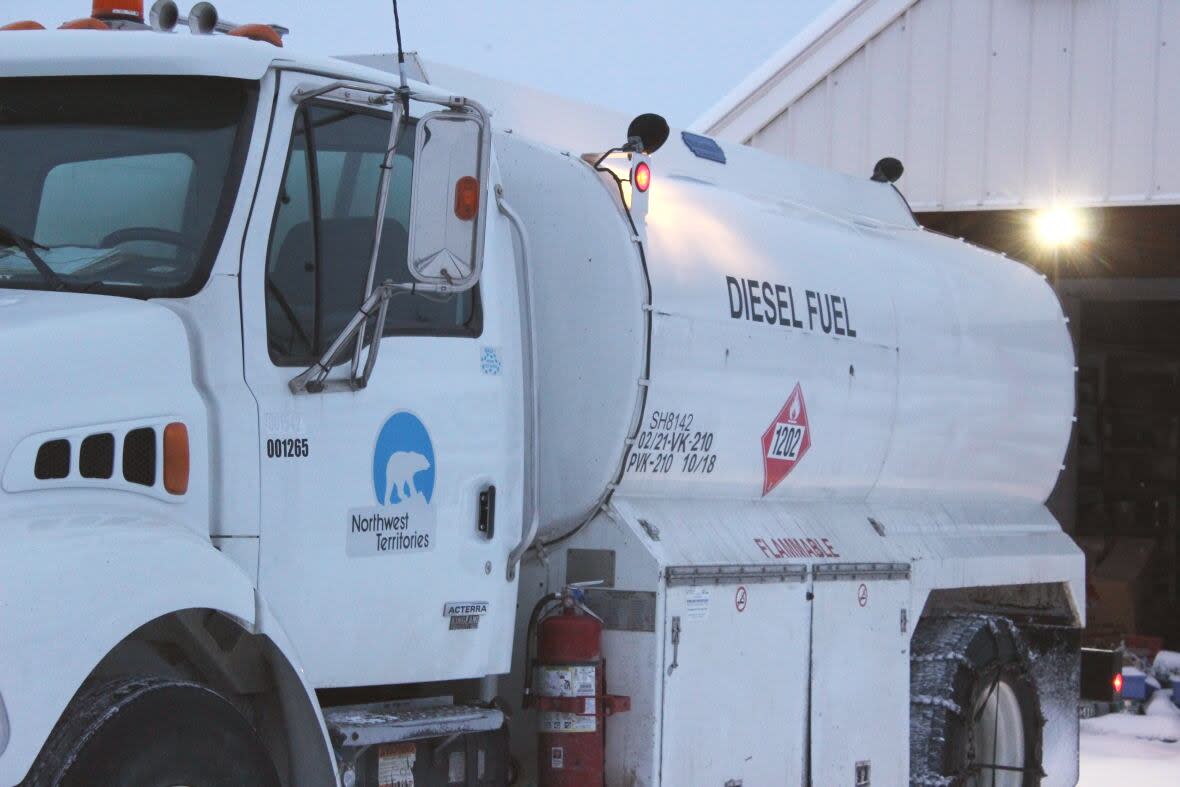Energy report says N.W.T. climate projects saved more than $12M on diesel in 2023

The N.W.T. government is forecasting that efforts to reduce greenhouse gas emissions in 2023 saved residents, communities, businesses and the government itself more than $12 million.
The figure stems from the territory's energy initiatives report which, along with a climate action report, outline how the N.W.T. is doing when it comes to reducing greenhouse gas emissions and responding to climate change.
Both documents were tabled at the Legislative Assembly last week.
The $12 million in savings is calculated by looking at how much money is no longer spent on diesel because of projects under the territory's energy strategy, which includes things like energy efficiency rebates and renewable energy projects in communities. The report looks at emission reductions in past years and what's expected in the coming years as a result of the government's efforts, along with the associated diesel offsets and money saved from those offsets.
According to the energy initiatives report, the N.W.T. is expected to have offset 8.4 million litres of diesel in 2023 — which, at $1.50 a litre, would have cost more than $12 million. Those savings aren't felt just by the government itself, but also by the residents, businesses, and communities.
The territory said it spent nearly $27 million on those energy projects in the last fiscal year, a figure that includes money flowing from the federal government.
Ben Israel, the territory's senior coordinator on energy, told CBC News that N.W.T. residents will and do see savings from energy strategy projects — highlighting programs from the Arctic Energy Alliance that account for a sizeable fraction of the territory's reductions.
"Replacing your heating oil furnace with actually the biomass boiler … this is a way more cost-effective option in most communities in the Northwest Territories," he said. "When you drive an electric vehicle, sure it's not cheap to buy — we actually have some rebates to help you buy one — but when you have one it's actually two to four times cheaper to operate."
Israel said the territory, on top of its investments into energy strategy projects, also spent more than $21 million in the last fiscal year stabilizing the cost of energy for residents through various programs and subsidies.
More ambitious target?
The territory is aiming to reduce its emissions to 1,094 kilotonnes of carbon dioxide equivalent by 2030 — a target it's likely to hit not through policy, but by the closure of the Diavik diamond mine. According to the most recent data from Environment and Climate Change Canada, the N.W.T.'s emissions were pegged at 1,287 kilotonnes in 2021.
The report indicates an emission reduction of about 50 kilotonnes once expected by 2025 has now been pushed back to 2028. Israel said some projects are taking more time to build.
He said the department is also looking for direction from the new government about whether to adjust its 2030 targets — a question that's been on the table ever since the federal government increased its target in 2021.

